UK PM’s asylum plan 'very concerning', breaks international law, warns UN
The United Nations has criticized UK Prime Minister Rishi Sunak for planning to halt small-boat crossings into the UK, emphasizing that stopping a refugee fleeing global danger zones from reaching safety is against international law.
Sunak’s government came under fierce criticism by the United Nations refugee agency for “extinguishing the right to seek refugee protection in the UK” after the British premier proposed on Tuesday a contentious new law to stop small boats from crossing the Channel and deport all refugees before hearing their claims to seek asylum.
The United Nations Refugee Agency (UNHCR) responded that to deport refugees without hearing their asylum claims amounted to a breach of international refugee laws.
The UNHCR said it was “profoundly concerned” by the plan, which gives the UK the right to criminalize, detain and deport asylum seekers, saying it would be a “clear breach of the refugee convention.”
It said such legislation would “amount to an asylum ban... no matter how genuine and compelling” individual cases may be.
“The effect of the bill would be to deny protection to many asylum seekers in need of safety and protection, and even deny them the opportunity to put forward their case,” the agency added.
“This would be a clear breach of the Refugee Convention and would undermine a long-standing, humanitarian tradition of which the British people are rightly proud. We urge the government, and all MPs and peers, to reconsider the bill and instead pursue more humane and practical policy solutions.”
Sunak vowed to stop people crossing the Channel illegally on small boats and to deport anyone arriving illegally in the UK within weeks under the controversial new plan.
Anyone arriving illegally in the UK will not be able to claim asylum, Sunak said. “If you come here illegally, you can’t claim asylum. You can’t benefit from our modern slavery protections. You can't make spurious human rights claims and you can’t stay.”
“We will detain those who come here illegally and then remove them in weeks, either to their own country if it is safe to do so, or to a safe third country like Rwanda and once you are removed, you will be banned as you are in America and Australia from ever re-entering our country,” Sunak said.
The British government has already admitted that the Illegal Migration Bill probably breaches the law, with the prime minister saying he is “up for the fight” that is predicted to take place over the matter in British courts.
The bill would impose a legal duty on the home secretary to remove anyone who arrives on a small boat, either to Rwanda or another “safe third country,” without considering their claims.
UK Home Secretary Suella Braverman admitted that the bill was “more than 50%” likely to break human rights laws.
Rights activists and opposition groups expressed outrage over the plan, saying it was unworkable and unfairly treated refugees.
British Red Cross said that by implementing the deportation plan, the British government would be in breach of international asylum conventions.
Christina Marriott, executive director of strategy for British Red Cross, said in an interview with Sky News that the relief organization was wondering “if you are fleeing persecution or war, if you are running from Afghanistan or Syria and are in fear of your life,” how you are going to claim asylum in the UK.
More than 45,000 migrants arrived on the shores of southeast England on small boats last year, a 60-percent annual increase on a perilous route that has grown in popularity every year since 2018.
Nearly 3,000 have arrived by boat so far this year, often ending up in costly hotels paid by the government. The backlog of asylum claims now exceeds 160,000.
The new plan would transfer asylum seekers to disused military barracks temporarily and cap the annual number of refugees settled via safe and legal routes.
The government has been for years making efforts to manage the migrant crisis. London had hoped the threat of a one-way ticket to the East African nation of Rwanda, where migrants would remain if accepted for asylum, would deter the cross-Channel journeys.
However, the plan announced by former Prime Minister Boris Johnson last year to forcefully transfer asylum seekers to Rwanda, met with international condemnation.
Governments across the globe called the move a breach of international commitments and responsibilities.
Eventually, the plan was blocked at the last minute by the European Court of Human Rights (ECHR), an independent body separate from the EU.
It was then upheld by Britain's High Court, but remains mired in appeals. No flights to Rwanda have yet been sent.
Reports on Tuesday said London might withdraw from the ECHR if the Strasbourg-based court again intervened in its latest legislation, due to what Braverman described as the "opaque" ruling handed by ECHR regarding the relocation of refugees to Rawada.
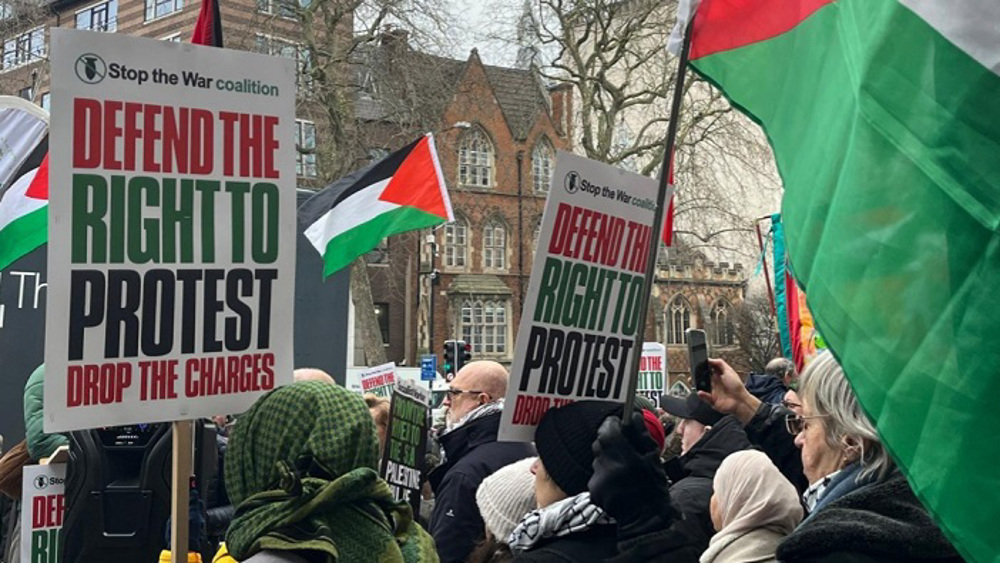
Palestine solidarity activist on trial in London

Law changes would give UK police ‘license to kill’, warn rights groups

British Zionist affiliate targeted Musk
US special envoy in Kiev amid war of words between Trump, Zelensky
Hamas says ready to free all Israeli captives at once in phase two of truce
Israel kills one, injures two in southern Lebanon: Media
‘Colonial powers’ have no right to determine fate of Palestine: Qalibaf
Explainer: Why are MK-84 2,000-lb bombs approved by Trump for Israel so deadly?
President Pezeshkian: Iran, Qatar opening new avenues for cooperation
VIDEO | Displaced return home despite destruction
IRGC unveils new homegrown smart missiles, drones drill


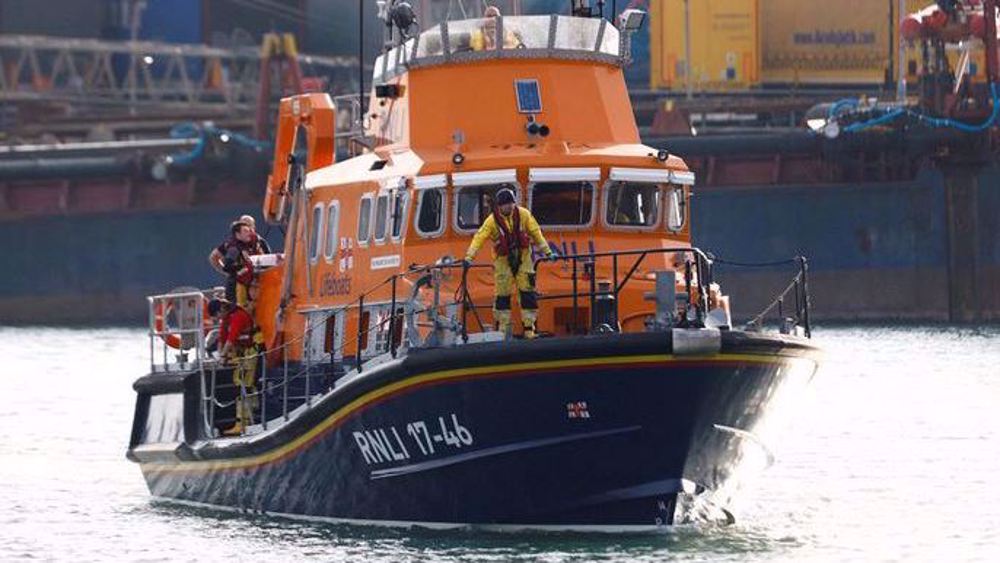
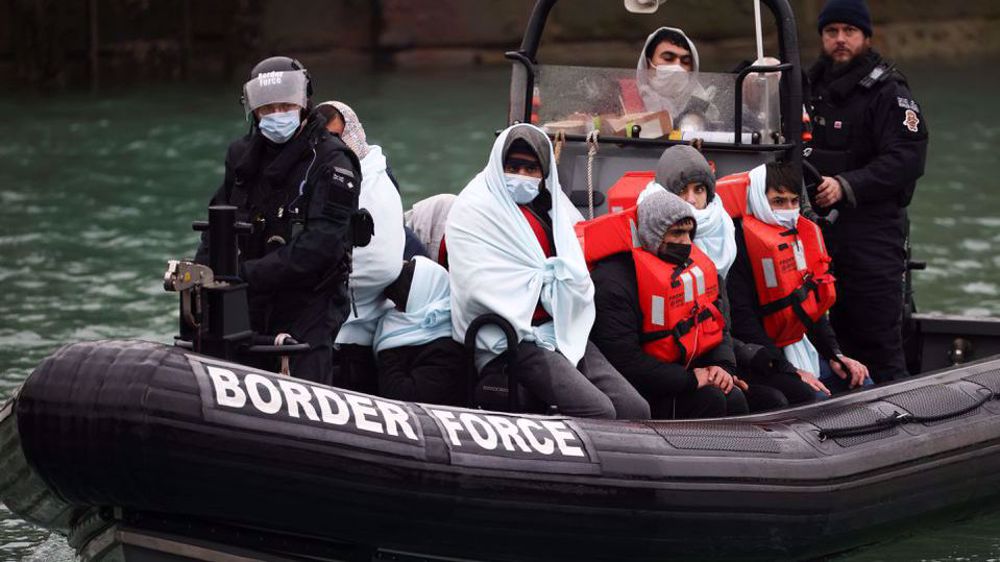




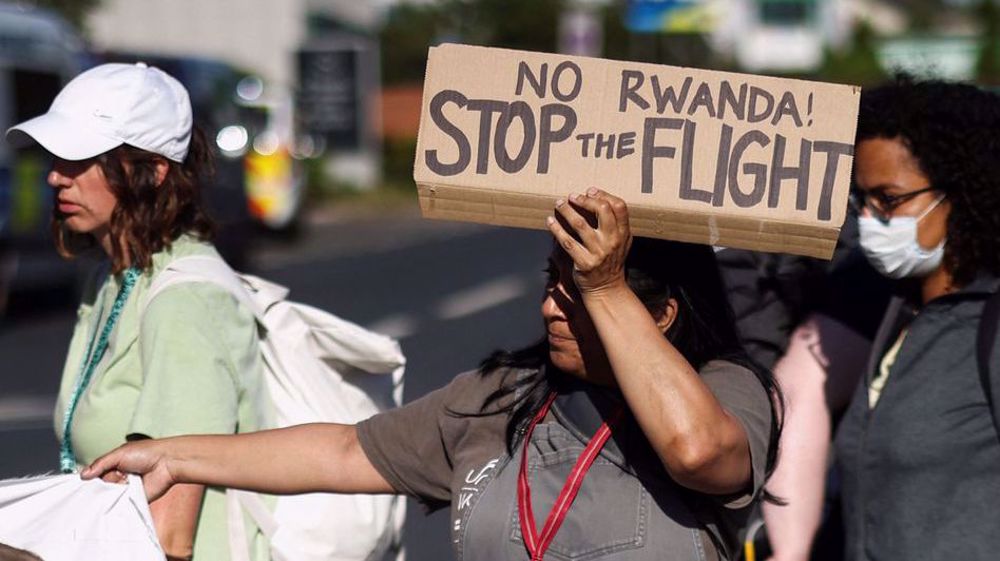
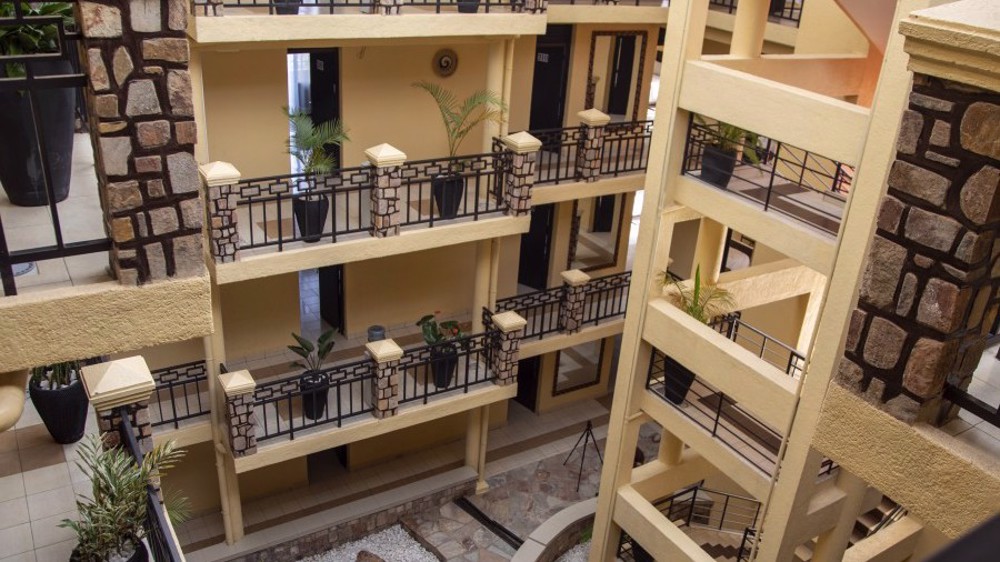
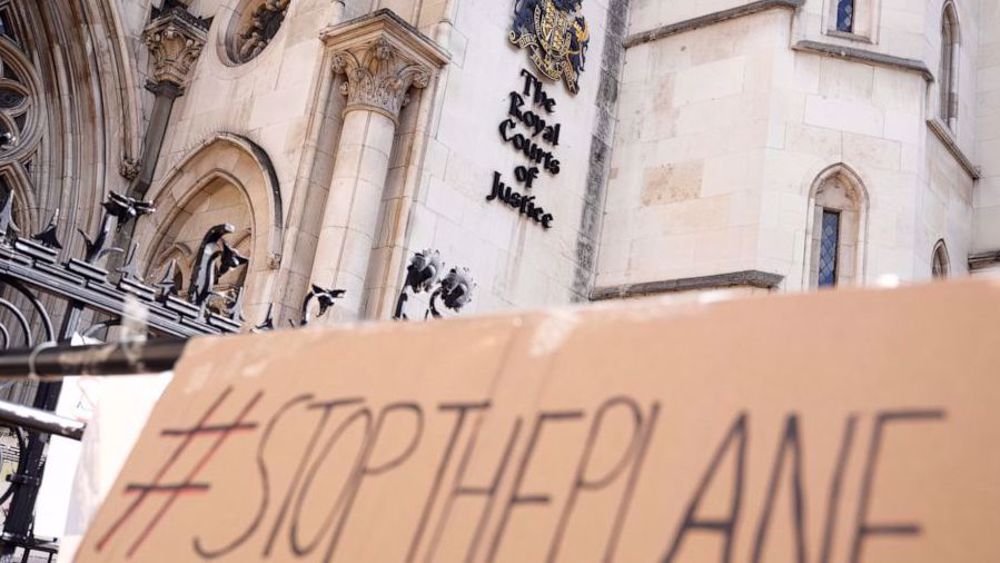
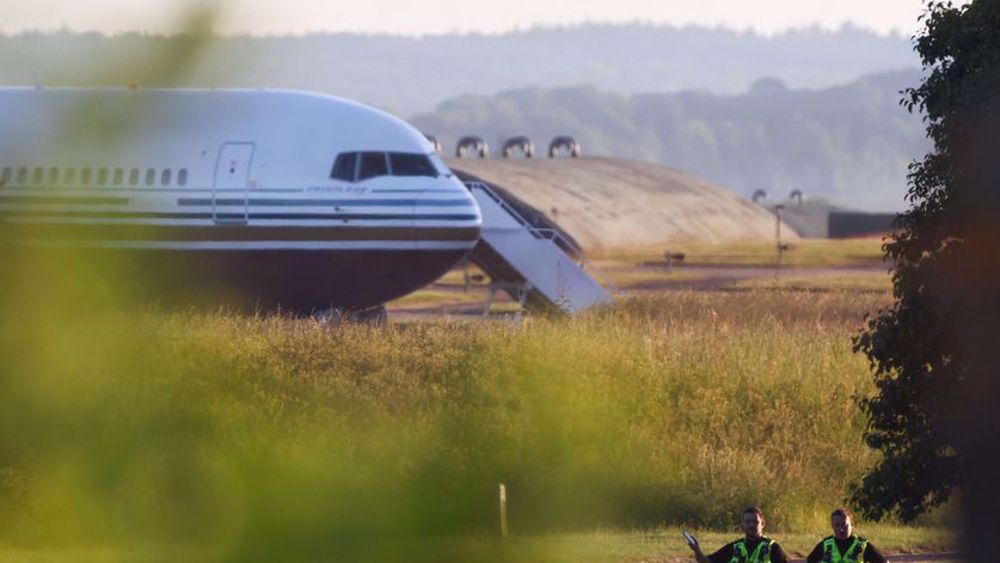
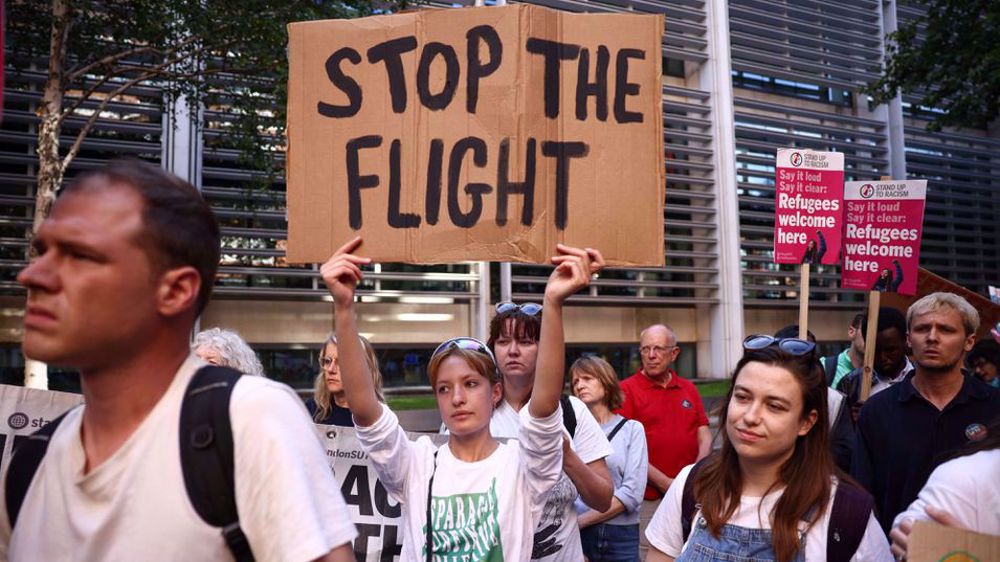

 This makes it easy to access the Press TV website
This makes it easy to access the Press TV website